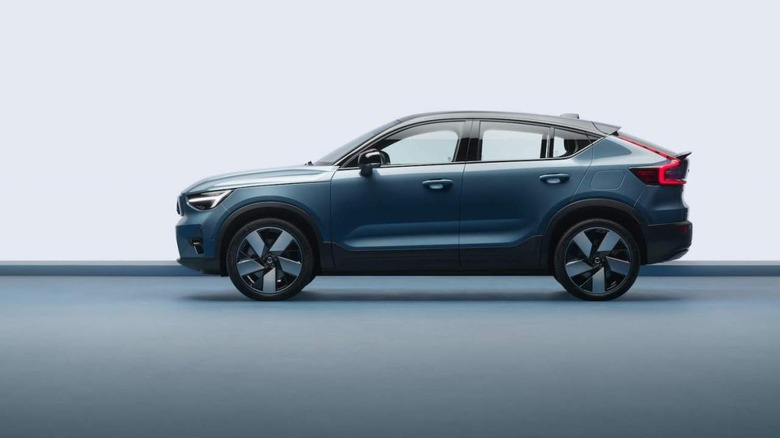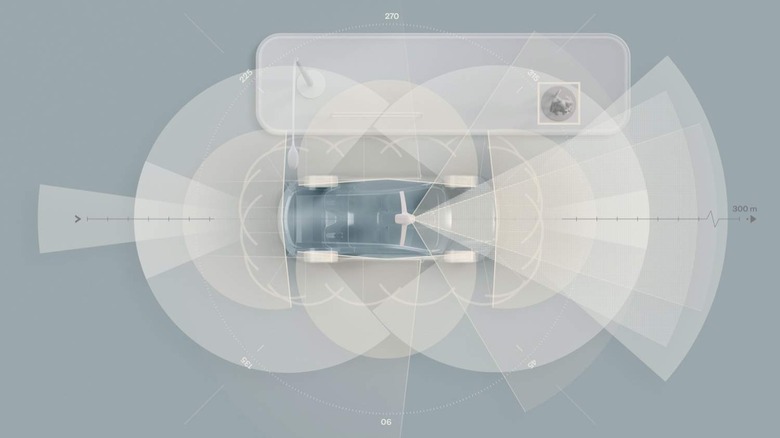New Volvo XC90 All-Electric SUV Will Start An Autonomous Roadmap
Volvo is readying an all-electric luxury SUV, with the successor to the XC90 combining an EV drivetrain with a new autonomous driving system. It's expected to be the first model to be based on Volvo's new SPA2 platform, an instrumental part of the automaker's shift to full electrification.
It's arguably a fitting point for Volvo's next big reinvention, given the current-generation XC90 was the flag-bearer for the automaker's last huge pivot. Launched in 2015, the full-size SUV helped demonstrate Volvo could compete on a quality and technology basis with rivals like Mercedes, Audi, and BMW, not to mention with its distinctive styling. It went on to ignite a rapid refresh of the company's entire line-up.
Today, though, Volvo finds itself at a pivot point with electrification. While there are several plug-in hybrids in the company's range, it currently only has a single all-electric model. That, the XC40 Recharge crossover, will be joined by the C40 Recharge in 2022.

While those two models will be relatively close siblings, however, the new XC90 will be a whole new vehicle. Expected to be revealed in 2022, it'll be Volvo's new flagship SUV and combine the cutting-edge of its autonomous and semi-autonomous driver-assistance and safety features. That'll also mean some new sensor technology, not currently seen on existing Volvo cars.
For example, SPA2 will include LIDAR laser range-finder support, using the Luminar tech that Volvo invested in a few years back. That new sensor bar will be tightly integrated into the upper windshield, Volvo has indicated previously, and give the onboard systems a much more detailed view of the road ahead.

That data will be processed by NVIDIA's DRIVE Orin SoC, the chipset and platform which the company developed for autonomous vehicles specifically. It'll run, among other things, software developed by Zenseact, the Volvo subsidiary development company. Earlier this year, Zenseact and Luminar revealed a full-stack autonomous driving system intended for series production vehicles.
It's not to say that the new XC90 will be capable of self-driving on day one. Instead, the automaker is taking a more progressive approach, with over-the-air (OTA) updates planned that will add new features as the software and legislative environment make such things possible.
"With the new safety package, Volvo Cars aims to reduce collisions and the reduction rate is anticipated to accelerate over time via over-the-air software updates," Volvo explains. "The new technologies are also designed to specifically address those traffic situations which result in a large portion of remaining severe injuries and fatalities found today."
The new XC90 EV will have redundant hardware for key systems like steering and braking, for example, acting as backups for when true autonomous driving is implemented. That could include Volvo Highway Pilot, the Level 3 system also expected to debut on the new XC90, which will be able to take over driving on certain pre-mapped highways without requiring human monitoring of the vehicle's driving.
Even if the new electric SUV isn't driving for you, there'll be more likelihood that it will weigh in should an emergency occur. Rather than simply warning drivers of an immediate issue, Volvo explains, "this new safety technology will over time increasingly intervene as needed to prevent collisions."
It's part of a general shift by Volvo to make some key safety decisions on behalf of drivers, a move which has proved to be controversial at times. The move to limit the top speed of all of its vehicles to 112 mph in 2020, justified by the fact that excess speed is a key contributor to deaths and injuries in road crashes, was one such example.

What may soften the blow to drivers concerned that they're being repositioned as co-pilots in some situations is the allure of lower running costs. Not only do EVs typically cost less in servicing than their gas or diesel counterparts, but Volvo says it also expects these advanced safety systems having a beneficial side-effect on things like insurance coverage.
"While saving lives and preventing injury remains the company's first priority, Volvo Cars also sees a potential added benefit of lower insurance costs as car crashes involving Volvo cars become increasingly rare," the automaker suggests. "A Care package, standard on all fully electric Volvo cars, includes insurance coverage where available."
As for the other features Volvo has in mind, the automaker says it'll reveal a little more on June 30 at its Volvo Cars Tech Moment event. For the full new XC90 reveal, meanwhile, we'll have to have some patience until next year.
